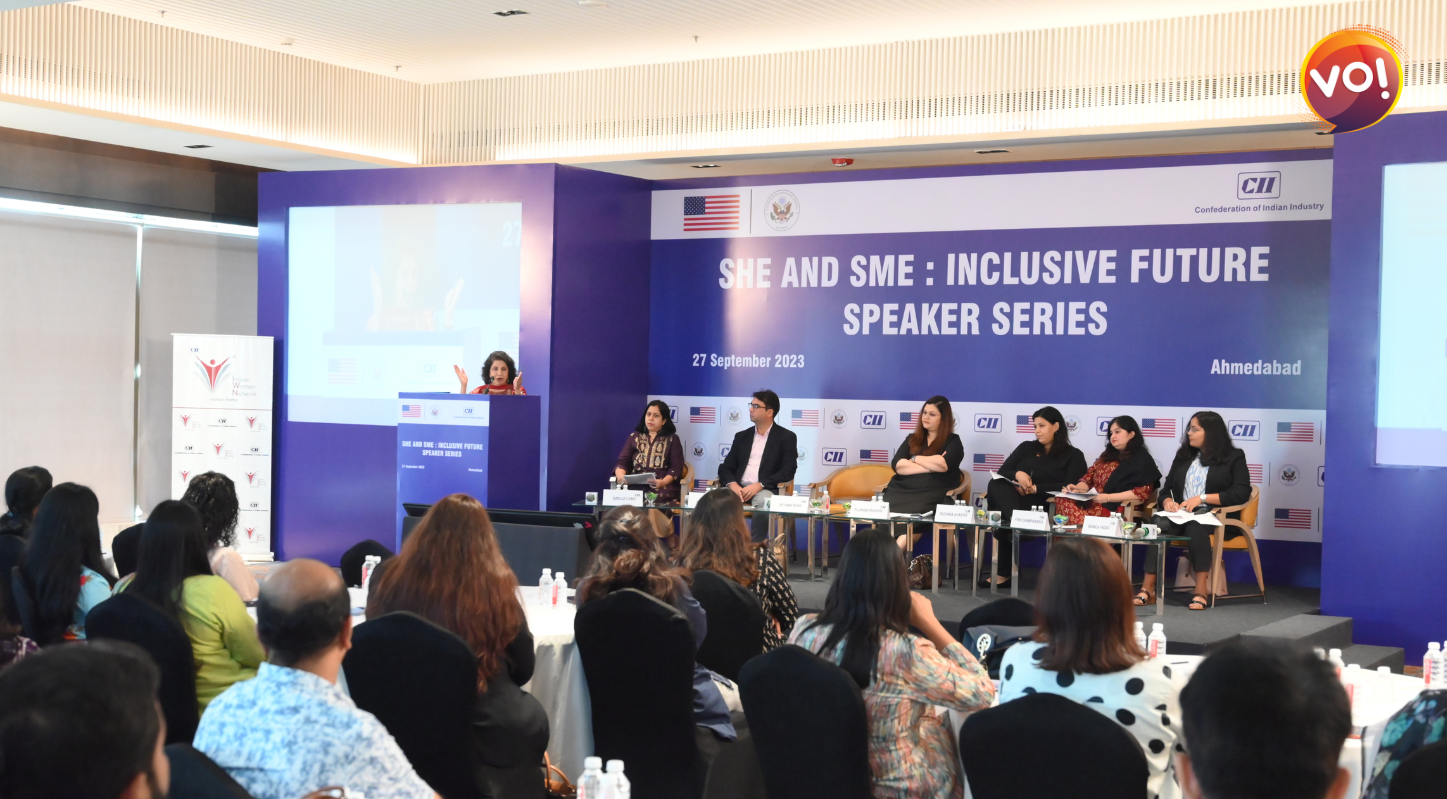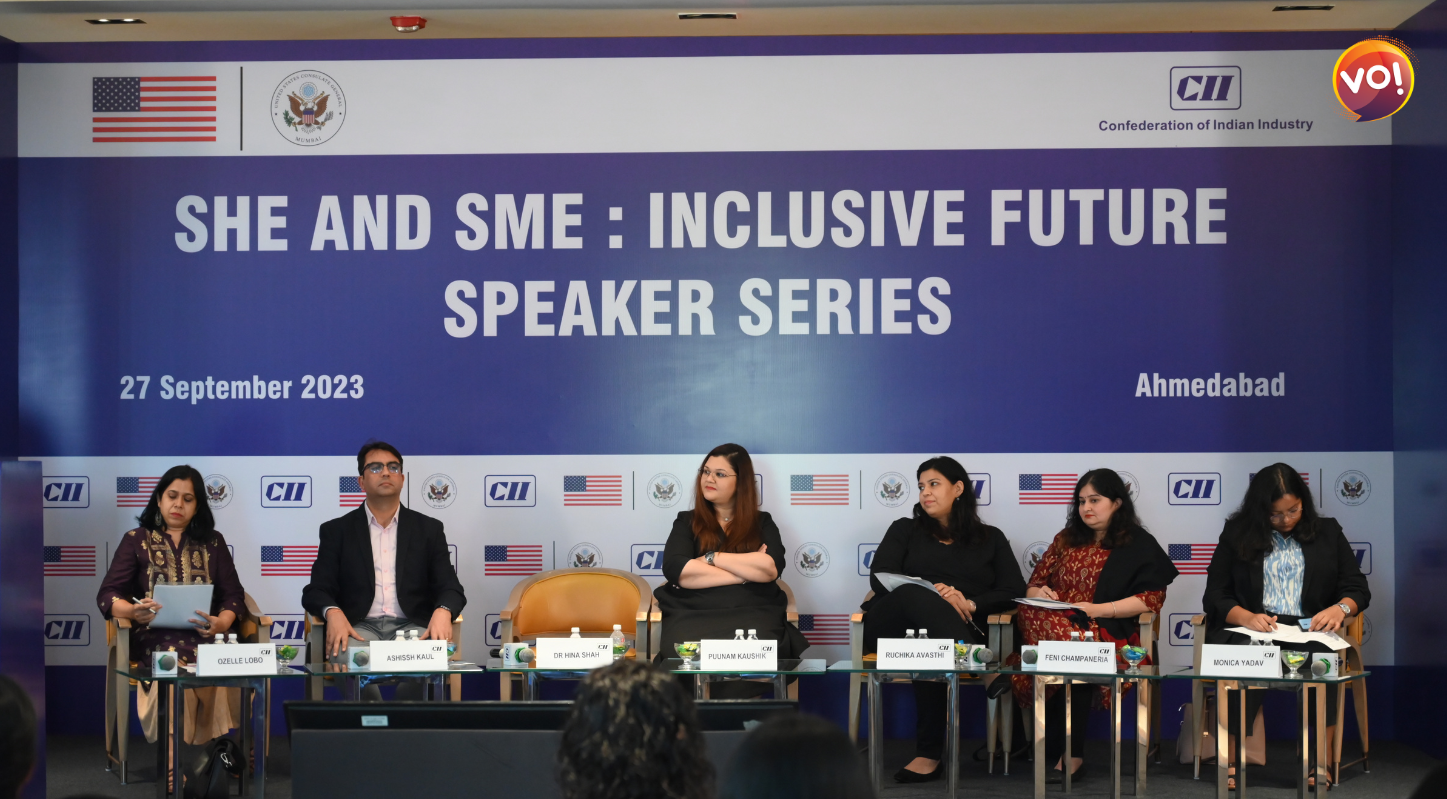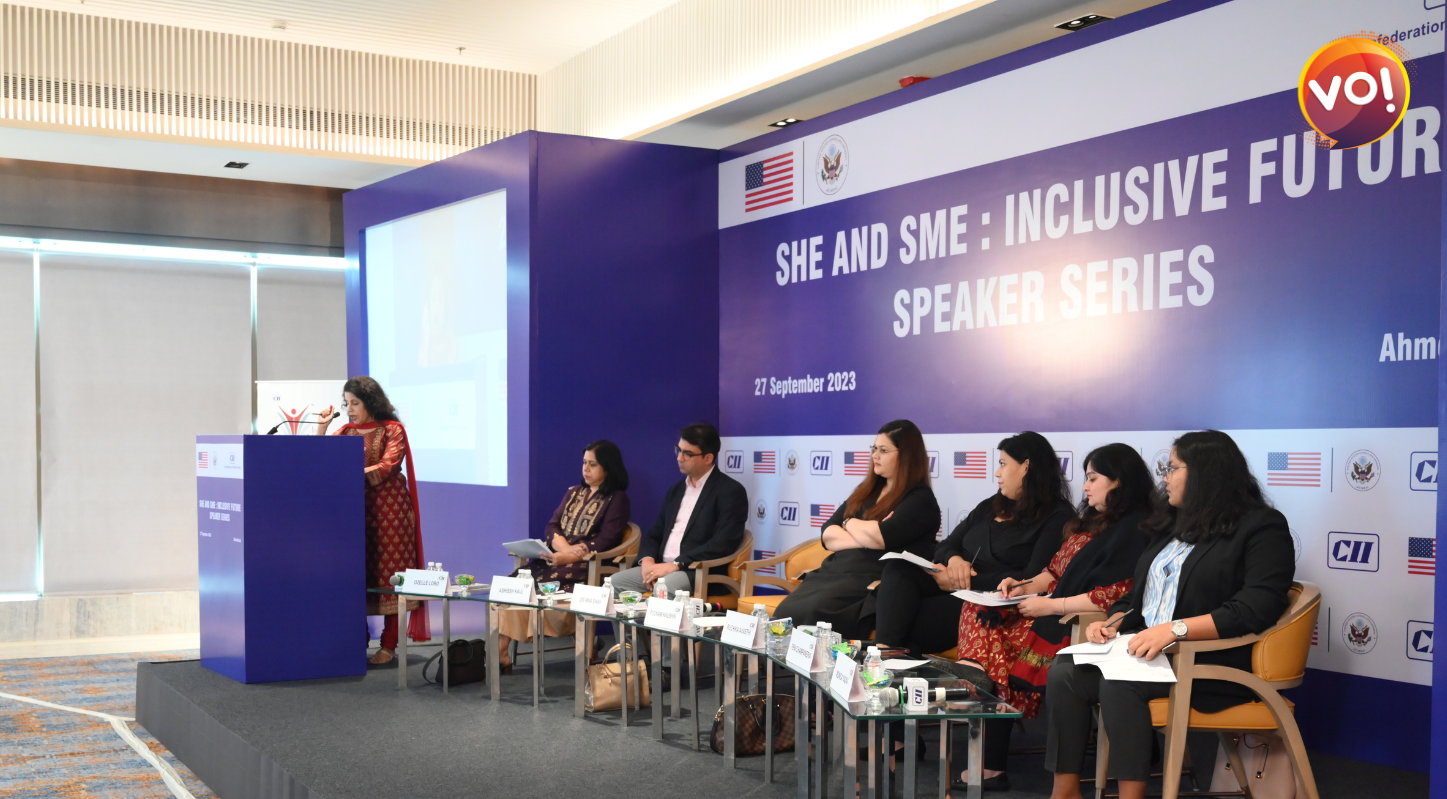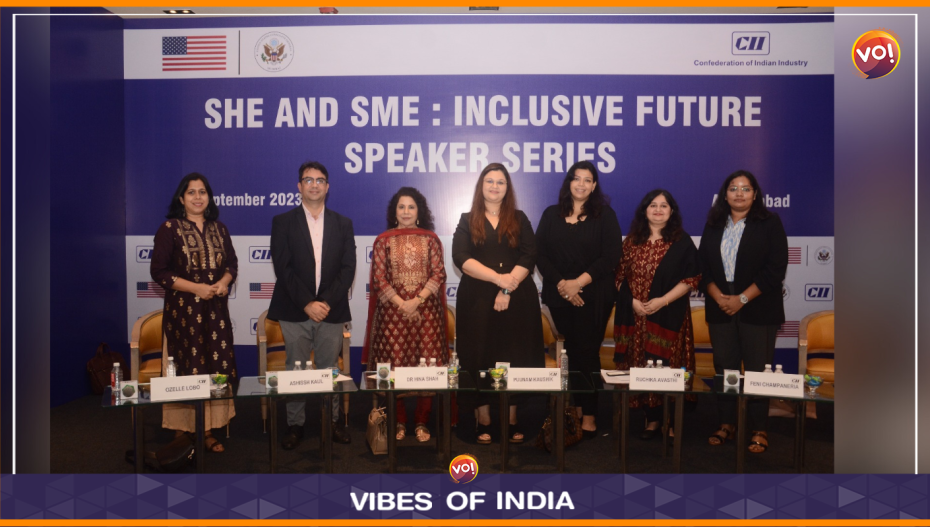The Confederation of Indian Industry (CII), in collaboration with the US Consulate in Mumbai held a session entitled “SHE AND SME: Inclusive Future” on Wednesday in Ahmedabad.
This workshop is designed to foster collaboration between experts from India and the United States pertaining to gender equality within organisations.
The primary focus of this initiative is to address the enduring gender gaps through the formulation, rollout, and implementation of gender-inclusive workplace policies, thereby striving for a more equitable environment.
As part of the same series a workshop was also held in Ahmedabad. The central objective of this series is to convene experts from both India and the United States to exchange insights and global best practices regarding gender-inclusive workplace policies. The workshop prioritised mechanisms for bridging gender disparities through internal policies aimed at attracting and retaining female staff while offering exemplary practices and experiences to galvanize industry action towards policy adoption and implementation.

Puunam Kaushik, Co Convenor, CII Gujarat State MSME & Vendor Development Panel & Dy Managing Director & Chief of Corporate Affairs, Meteoric Biopharmaceuticals Pvt Ltd, highlighted the opportunity these sessions provide for SMEs to harness their knowledge base. She emphasised that enhancing the economic contribution of Indian women, currently below the global average at 17% of GDP, could boost India’s growth by 1.5 percentage points annually. The focus should be on facilitating maximum female participation in the workforce by ensuring equal pay, safe workplaces, maternity benefits, and counselling women that marriage, maternity, and mobility should not restrict their career aspirations.
Hina Shah, Founder & Director, International Centre for Entrepreneurship & Career Development, underscored the transformative potential of empowering women, not just at the individual level but also for families, communities, and nations. She advocated for women to explore entrepreneurship for socio-economic empowerment.
Monica Yadav, Chairperson, Indian Women Network, Ahmedabad Chapter & Founder, Respire Experiential Learning, emphasized the critical role played by women-led Micro-Small Industries in India, contributing significantly to GDP and fostering social equity and sustainable progress.

Ashissh Kaul, Director – Knowledge and Advisory & Business Head – PSE Business Society for Human Resource Management India, emphasised that leadership today requires both problem-solving capabilities and the wisdom to appreciate that diversity is fundamental to an inclusive culture. He emphasised that diversity isn’t merely a checkbox; it’s integral to shaping business outcomes and processes.
Ruchika Avasthi, Global Equity, Diversity & Inclusion Lead, Boeing India, reiterated the importance of gender partnership and empowerment, especially in SMEs, to enable women to shine. She highlighted the need to address gender-related barriers to achieve equity.
Feni Champaneria, Assistant General Manager – Human Resources, Larsen & Toubro Ltd, shared some of the organizational initiatives and best practices aimed at fostering a supportive workplace.

The session also touched upon the Women’s Reservation Bill, a proposed legislation in India aiming to reserve a specific percentage of seats in the Lok Sabha and state legislative assemblies for women. Supporters argue it’s crucial for gender equality, while others raise concerns about its impact and the need for broader reforms.
Women’s participation in the workforce has evolved over the years, but gender pay gaps, the glass ceiling, and work-life balance challenges persist. Efforts to empower women include mentoring programs, leadership training, and entrepreneurship opportunities, but gender discrimination remains an issue. Awareness and activism for women’s rights continue to shape the trajectory of women in the workforce, with hopes for greater equality and empowerment in the future.
Diversity and inclusion are now actively promoted by many companies, recognising that diverse teams are more innovative and capable of solving complex problems. Maternity and parental leave policies vary worldwide, affecting women’s ability to balance work and family.
Efforts to empower women include mentoring programs, leadership training, and initiatives to amplify women’s voices. Entrepreneurship is increasingly viewed as a viable career path for women, but gender discrimination, including unequal pay and workplace harassment, remains a pervasive issue.
The experiences of women in the workforce are influenced by regional and cultural factors, leading to diverse challenges and opportunities. Recent years have seen increased awareness and activism around women’s rights and gender equality. These movements have sparked discussions and actions aimed at creating more inclusive and equitable workplaces for women. As workplace policies and cultural attitudes continue to evolve, the trajectory of women’s participation in the workforce is expected to undergo further transformation toward greater equality and empowerment.
Also Read: Jaishankar Takes A Dig At West For Stance On Canada













